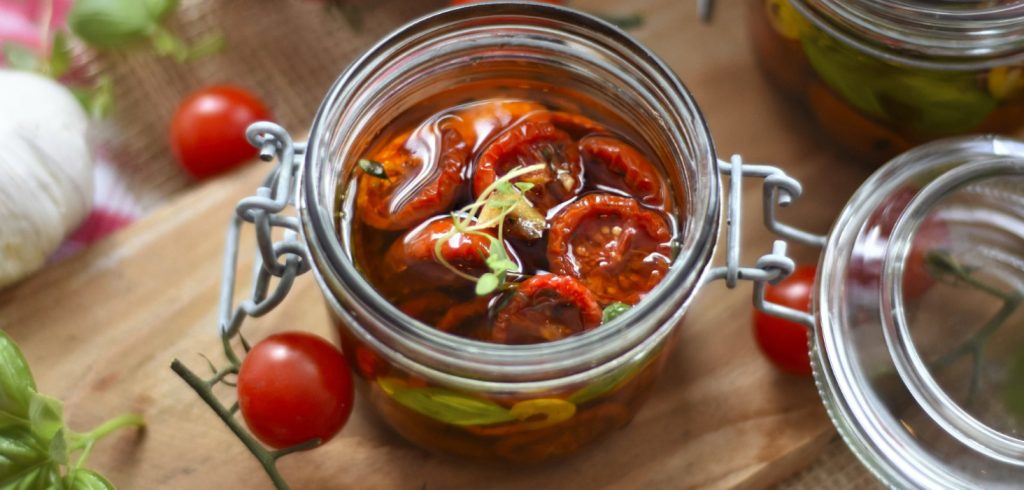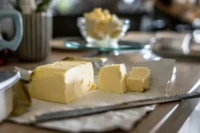
Storing Baby Formula in Mylar Bags
As a prepper, you understand the importance of being prepared for any situation. When it comes to ensuring that your baby’s nutritional needs are met

As a homesteader or someone who lives self-sufficient, canning is always a big topic. It is a great way to preserve your produce. However even when done properly, there are certain things you should take care of. One of the most dangerous things when canning is Botulism. This can even cause a fatal poisoning.
This is an Excerpt from the WHO page: https://www.who.int/news-room/fact-sheets/detail/botulism
C. botulinum is an anaerobic bacterium, meaning it can only grow in the absence of oxygen. Foodborne botulism occurs when C. botulinum grows and produces toxins in food prior to consumption. C. botulinum produces spores and they exist widely in the environment including soil, river and sea water.
The growth of the bacteria and the formation of toxin occur in products with low oxygen content and certain combinations of storage temperature and preservative parameters. This happens most often in lightly preserved foods and in inadequately processed, home-canned or home-bottled foods.
C.botulinum will not grow in acidic conditions (pH less than 4.6), and therefore the toxin will not be formed in acidic foods (however, a low pH will not degrade any pre-formed toxin). Combinations of low storage temperature and salt contents and/or pH are also used to prevent the growth of the bacteria or the formation of the toxin.
Though spores of C. botulinum are heat-resistant, the toxin produced by bacteria growing out of the spores under anaerobic conditions is destroyed by boiling (for example, at internal temperature greater than 85 °C for 5 minutes or longer). Therefore, ready-to-eat foods in low oxygen-packaging are more frequently involved in cases of foodborne botulism.
In a nutshell there is a bacterium (Clostridium botulinum) that naturally produces a potent toxin when living (Just as you naturally produce CO2 and other substances). This bacterium can form so called spores, which basically means a state where it is dormant and resistant to heat and other extremes. These spores exist everywhere. Meaning they are already in the food that you want to preserve no matter how much you clean it. Problem is, you have no way of smelling or tasting the toxin so you will not know it’s there.
But to get from naturally occurring spores to toxin, a few conditions have to be met. First of all, there has to be a lack of oxygen, which is exactly what you want to achieve when storing food long term (Because there are also other microorganisms that do grow when there is an abundance of oxygen). Secondly a certain temperature has to be reached for the bacteria to be able to grow. If it is too cold, they simply won’t (and remain in their spore form). Also, if something is acidic (like pickled vegetables or high acidic foods like most fruits with a pH less than 4.6) the bacteria will not grow either. Therefore, as an example the following low acidic foods have a high risk for botulism:
Good news: you can easily deal with it… If there is any food that you fear might have botulinum toxins in it if you simply cook/reheat the ingredients (minimum of 85 °C for 5 minutes or longer) its fine (except for infants – see below). Our home canned potatoes for example could potentially not be safe to eat straight away. But we usually dump them into a stew and then they are totally fine. It is important that the internal temperature of the foods reaches the 85°C for at least 5 minutes.
But that means when home canning or vacuum sealing foods, these foods should always be cooked AFTER unpacking. Only then are they safe to eat with regards to botulism.
Also make sure to always keep raw and uncooked foods separate. When pickling, make sure to use a suitable recipe.
If you want to home can non acidic foods (like meat or potatoes) that are ready to eat without heating after uncanning you MUST pressure can them. This means that you have to heat the cans up to a minimum of 121 °C for 3 minutes or longer (which is impossible without a pressure cooker or pressure canner). If you do this, the spores themselves will be killed and no bacteria can form later. Usually industrially canned foods will fulfil this requirement.
The human gut theoretically would also provide the right circumstances for the bacteria to grow from the spores. However, your naturally occurring gut bacteria (after the age of 6 months to 1 year) will prevent the botulism bacteria from growing. Thus, eating the spores will not be a problem for any adult. However, infants (below age of 1) ingesting spores might develop botulism symptoms even if the canned food has been heated after uncanning. In this case the botulism bacteria simply start to grow in the infant’s gut and produce the toxin there.
Therefore, home canned foods are a NO GO for infants (below the age of 1)
You also might remember that raw honey should not be given to infants below the age of 1. This is because raw honey might contain the spores too. Honey is acidic however (and contains lots of enzymes that prevent the growth of microorganisms) and thus will not contain any toxins.

As a prepper, you understand the importance of being prepared for any situation. When it comes to ensuring that your baby’s nutritional needs are met

If you’re a fan of probiotic-rich foods, you’ve probably heard of kefir. This tangy, fermented drink is packed with beneficial bacteria and yeast, making it

Making your own butter at home is a rewarding and surprisingly simple process. With just a few basic ingredients and tools, you can create rich,
We are on Maternity Leave. Shop is closed till the 25th of November. All incoming orders will be shipped when we're back :) Dismiss